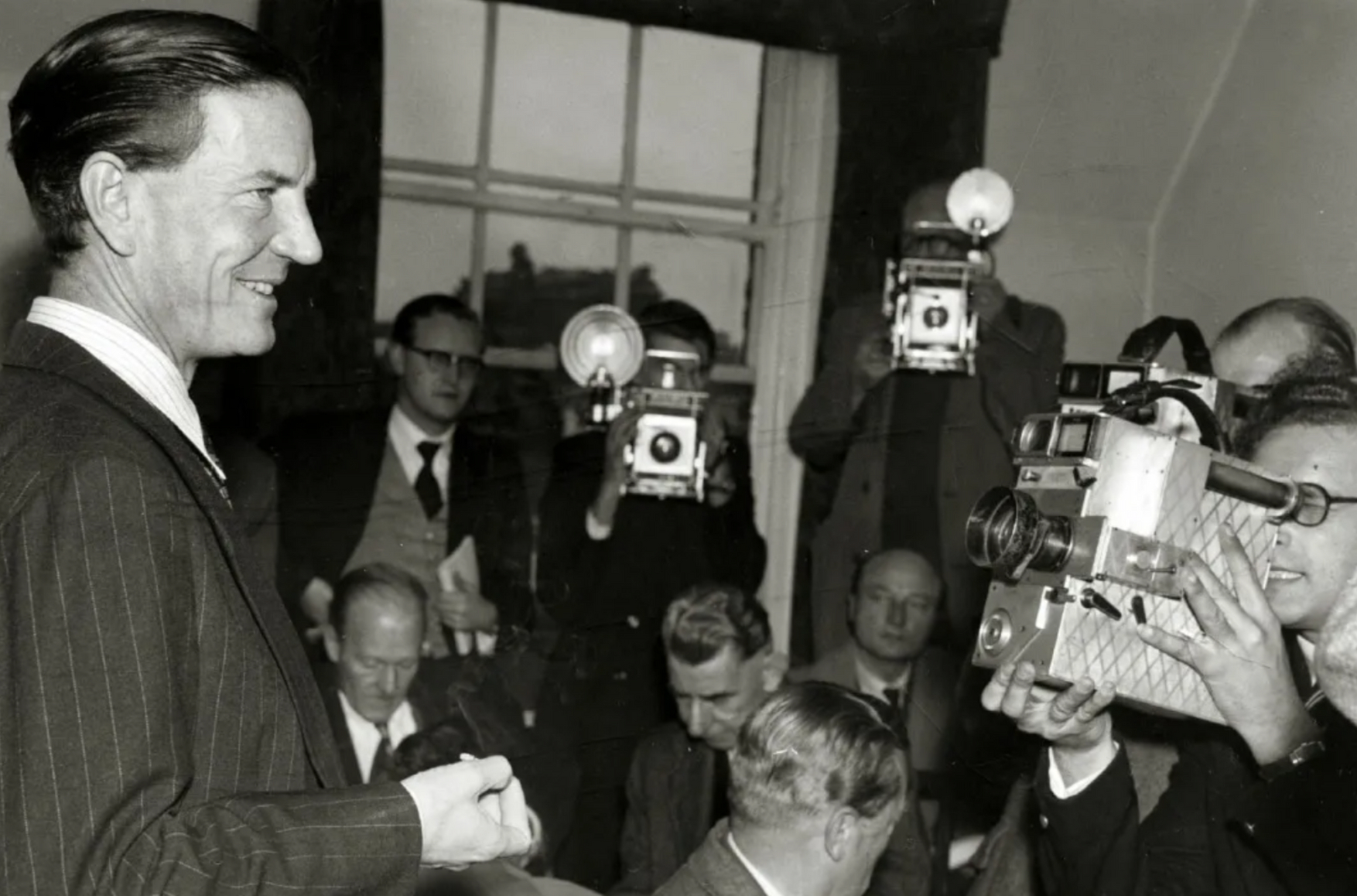

January 1 marked the 111th anniversary of Kim Philby, an espionage superstar who worked for the Soviets for half a century. His students from the KGB and the SVR (Russia's Foreign Intelligence Service) regularly visit his grave, and state-owned media extoll his legacy on his every decennial. There were plans to turn his famous apartment, where the retired spy had trained Russian agents, into a museum. His widow was willing to cede the property to the SVR (in exchange for an ample pension) but received nothing and died in abject poverty. The “Philbophiles” were left empty-handed as well, once Veronika Krasheninnikova, the lady friend of Sergey Naryshkin, the head of the SVR, entered the scene to make an inventory of Philby’s assets. After her intervention, some of his most valuable possessions went missing and his apartment went on sale. Meanwhile, Krasheninnikova, who calls herself a political scientist and has no apparent sources of income, became the owner of multiple elite properties in downtown Moscow.
Content
The Philbophiles
Naryshkin's woman
The Philbophiles
Harold Adrian Russell «Kim» Philby was born in 1912 in British India into the family of an Arabist. Since 1934, he worked for Soviet intelligence and was a member of the so-called “Cambridge Five”. He also held a high-ranking post in the British counterintelligence (MI6). After the Second World War, he oversaw British agents in Istanbul, headed the MI6 mission in Washington, and established personal contacts with CIA and FBI chiefs. Thanks to Philby, Stalin and later Khrushchev obtained top-secret intelligence, and according to British researchers, his espionage cost the lives of several English agents.
In 1963, Philby fled to Moscow, to become an external advisor to the KGB’s First Main Directorate, a subdivision responsible for managing and training covert agents. For his merits, the Political Bureau of the Central Committee of the Communist Party of the Soviet Union awarded Philby the orders of Lenin and the Red Star and granted him a luxury apartment at 6 Trekhprudny Alley with a floor area of 123.1 square meters (currently valued at approximately $1 million).
In his three-bedroom apartment, Philby gave seminars, passing on the secrets of the trade to the younger generation of covert KGB agents. “Off the top of his head (or after preparation), Philby offered situations agents may encounter in the field and analyzed them. For instance, he is a British counterintelligence agent who is trying to get a newly-arrived Soviet diplomat to disclose the true purpose of his posting. In the next situation, the Teacher posed as an official liaison representative who covertly mentions a tiny bit of priceless information that the agent has to detect and ‘pull at the thread’. By the end of each class, the students were drenched with sweat,” recalls Mikhail Bogdanov, a Soviet agent who was expelled from England for espionage in the late 1980s.
At the end of the course, Philby submitted his report to the First Main Directorate and wrote up each potential agent's profile. Thus, he gave Valery Kislov, who subsequently replaced the KGB’s resident spy in Copenhagen, an unsatisfactory mark: “Unpredictable. Prone to acting on emotions.” The KGB should have taken Philby's warning more seriously: in Denmark, Kislov fell in love with a married woman, and instead of focusing on missions, spent hours in his embassy car parked outside her house and even sang serenades at night. Eventually, the lady's neighbors complained to the Soviet embassy, and the womanizer spy was returned to the Soviet Union on short notice.
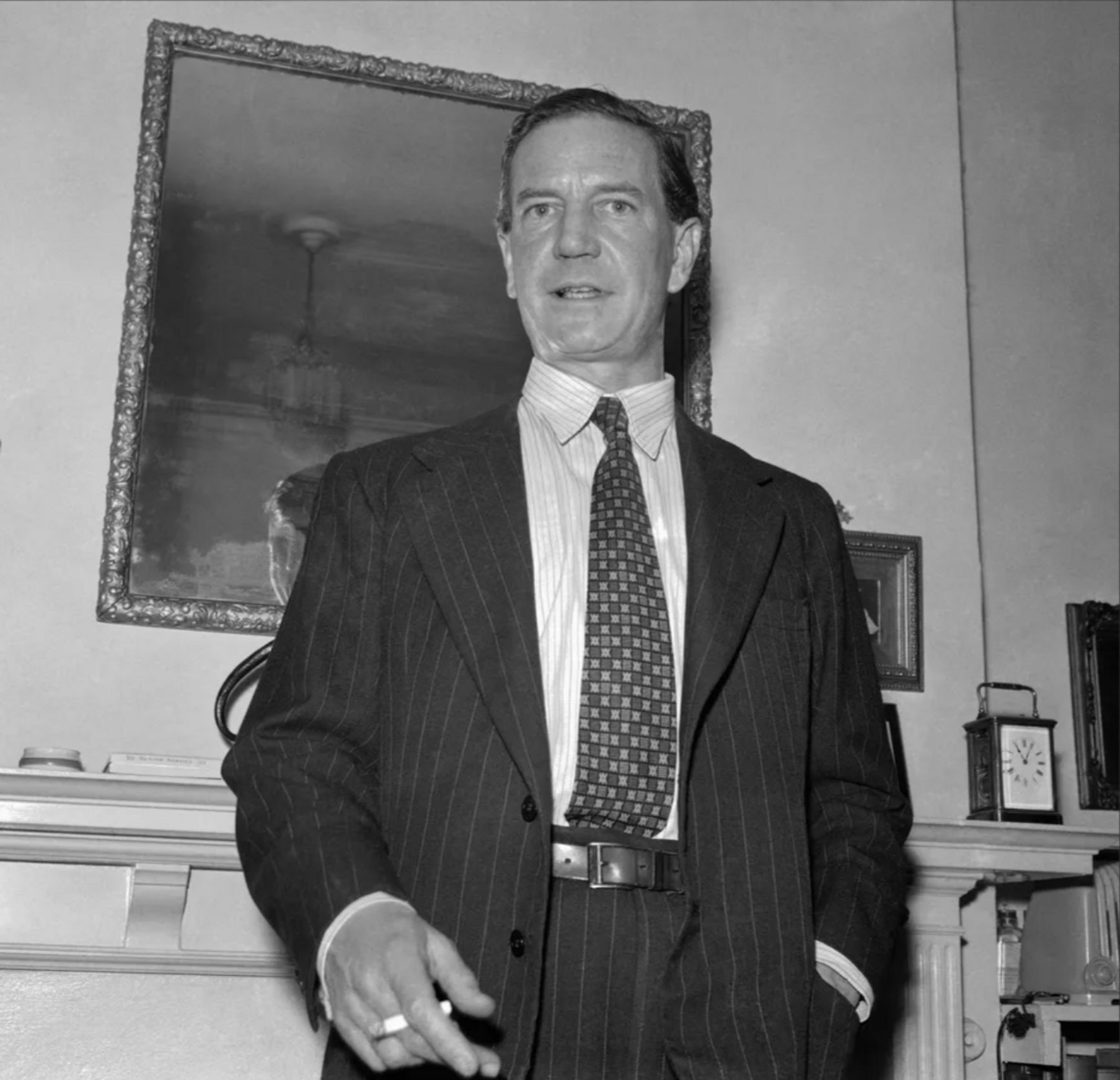
Kim Philby
Philby died in 1988 after a prolonged depression, at the height of Gorbachev's perestroika (one of the versions suggests suicide). Her husband's demise left Rufa Pukhova penniless, forcing her to start selling his personal effects. The “spy artifacts” were purchased mostly by Philby's former students who jokingly called themselves “the Philbophiles” The core of this club includes former state secretary of the Union State of Russia and Belarus Grigory Rapota (worked at KGB stations in Sweden and Finland in the 1980s), Deputy Editor in Chief of Rossiyskaya Gazeta Nikolay Dolgopolov (a Soviet agent in France), head of the investment fund Pangeo Capital Yury Kudimov, who worked in Mexico under the cover of a Novoye Vremya magazine corespondent, former Soviet “diplomat” in London Alexander Korsik (also the chairman of the board at Bashneft until 2016), former employee of the KGB station in Finland Vladimir Chernov, who headed the President's directorate for cultural liaisons with the near abroad from 2012 to 2021, retired SVR general and Echo of Moscow co-host Yury Kobaladze, writer Mikhail Lyubimov, who was expelled from the UK for espionage, and the aforementioned “journalist” Mikhail Bogdanov, also blacklisted by the UK.
In 2008, Rufa Pukhova offered to cede the ownership of the apartment to the SVR because her pension was too small to cover utility bills and her medicines. In exchange, the widow made two requirements: financial assistance for as long as she lived and the unfreezing of Philby’s London bank account with 10,000 pounds. Echo of Moscow journalist Kobaladze volunteered to handle the banking issue through the connections he acquired working in London as a covert agent. However, the ex-spy failed to get the money.
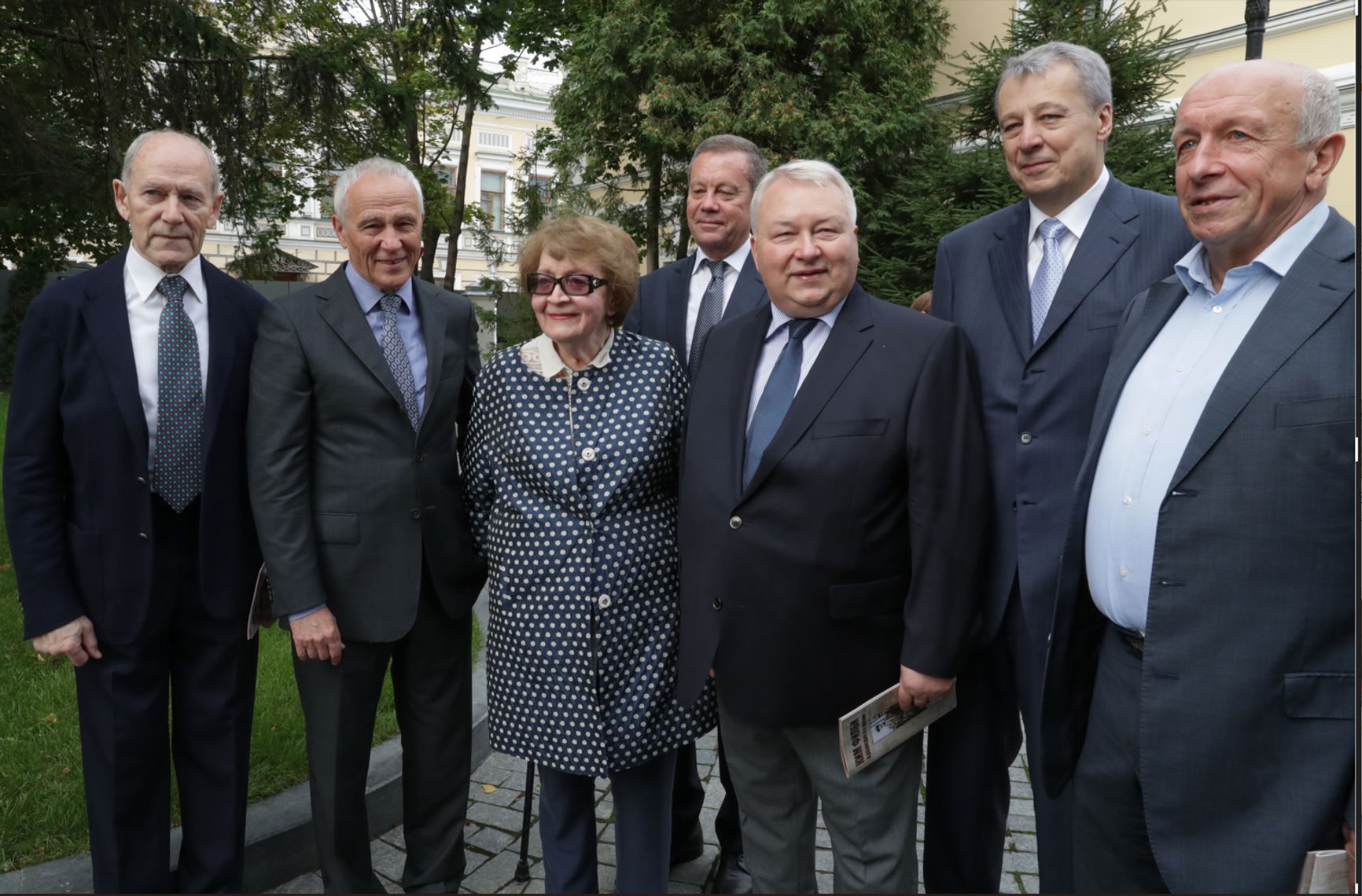
Rufina (Rufa) Pukhova, the spy's widow, and the Philbophiles
Philby's widow’s request to transfer his apartment to the SVR was relayed to Vladimir Putin, but he did not respond. The then foreign intelligence chief Mikhail Fradkov said he was not interested either. Pukhova took offense and eventually left the apartment to her brother Konstantin. He did not outlive her by long, and the apartment went to his widow, 70-year-old Natalya Pukhova.
Naryshkin's woman
In 2019, it became known that Rufa had cancer and did not have long. Philby's students began to frantically look for ways to preserve his apartment and possessions. Apart from real estate, his most important assets were the library, which included The History of the Crimean War (an 1850 edition) and rare collectible books the Cambridge Five stole from the celebrated Trinity College Library in Dublin. The apartment also held a Piranesi print, 17th-century Spanish furniture, antique handmade Persian rugs, paintings, icons, gifts from the East German Stasi and the Bulgarian KGB, a signed photograph of Che Guevara, and even a hockey puck Philby caught at an Izvestia-78 game (The Insider has a full list of his valuable possessions).
The students struggled to find consensus: some suggested persuading Rufa to rewrite her will in one of the Philbophiles’ favor and turning the apartment into a private museum of sorts. Others feared that the heiress, Natalya, would sell the property to the first random buyer and suggested holding a closed auction. “We need to make sure there are no bystanders, journalists, or random people. This is doable if we find a third-party auctioneer who is acceptable to all participants and has no conflict of interest. We are capable of setting the most basic, abridged rules ourselves. We can also provide a ballpark opening price for every item on the list. I’m not even sure we should run them by Rufina, as she might only add confusion,” SVR general Vladimir Chernov wrote to Bogdanov.
“Yes, correct. It's all about the money. Who is willing to pay the market price and donate some of the money to sustain Rufina? Besides, we don't even have to cover the full market value; any lump sum in the vicinity of 10-15 million rubles (or even less) would look good to Natalya. In the latest conversation with Rufina, she hinted that we should ‘offer Natalya a decent handout, and I’ll talk to her’. We should keep in mind that Natalya is a simple, low-maintenance woman, used to living in a tiny apartment in a residential area on a tiny pension. Her only concern is her teenage granddaughter, who would be over the moon to get a dowry of several million,” Bogdanov replied to Chernov.
Apart from the Philbophiles, the Soviet super-mole's personal effects drew the attention of the MoD's Military University and a couple of museums in Moscow. However, their plans were thwarted by a Veronika Krasheninnikova, the CEO of the Foreign Policy Research Institute (FPRI), who barged into the apartment, citing the orders of the SVR chief Sergey Naryshkin, and made a full inventory of everything in it.
“It became crystal clear that, once this lady entered the scene, a Philby museum was off the table,” a museum employee told The Insider anonymously. “Frankly, the celebrated double agent’s students were a sorry sight. A moment ago they were arguing over who should get the radio and the pipe set, and then they were staring at each other blankly.”
Krasheninnikova, who came to Moscow from the remote city of Cherepovets and built a mind-boggling career, deserves a special mention. In her bio, she states that she graduated from the Leningrad Shipbuilding Institute and went on to get a degree from Sorbonne and Sciences Po, another high-ranking college in Paris. In 1996-1997, Krasheninnikova worked at the UN in Geneva, and in the early 2000s, was on the board of the Council for Trade and Economic Cooperation CIS-USA (CTEC) and represented the Russkiy Mir Foundation in North America (both organizations provided cover for SVR officers). In 2011, she headed the FPRI, a think tank funded through presidential grants. In 2008, Krasheninnikova arranged the first visit of US professor Alfred Ross to Russia, following his publications on the perils of “orange revolutions” and the disruptive activities of American NGOs across the post-Soviet space.
In January 2012, Krasheninnikova sponsored the adoption of a law on non-profit organizations functioning as foreign agents, and Putin included her in the Public Chamber by a special decree, tasking her with preparing the bill. In the same year, the State Duma passed the law on foreign agents, and Krasheninnikova took over the post of advisor to CEO of Russia Today Dmitry Kiselyov, also becoming a political consultant for its Editor in Chief, Margarita Simonyan. Subsequently, she joined the steering committee of United Russia, published several books on CIA’s and the US Department of State's ploys in Russia, and writes columns for pro-Kremlin media.
Last August, the CEO of the FPRI joined MoD generals in the presidium of the International Antifascist Congress at the Ministry of Defense presenting the following item: “Nazism in the modern world: the reasons for its existence, the forms of its manifestation, the trends of its development”. She also covered “the Third Reich’s post-war transformation into the intelligence apparatus of the US and NATO”.
Apparently, Krasheninnikova managed to turn anti-Western scaremongering into a lucrative business: according to the Moscow address register, she owns a four-bedroom apartment not far from the Kremlin, at 9 Tverskaya Street, in a house once inhabited by celebrated Soviet academicians, developers of nuclear weapons, and decorated army generals. The apartment is valued at about $2.9 million. Krasheninnikova also owns a two-bedroom apartment in the Moscow Art Theater Actors’ Residence in Glinishchevsky Alley (80 sq.m., $860,000). She drives around in an XF Jaguar, which costs around $86,000. Meanwhile, her CEO position at the FPRI hardly brings her any income, as the organization has not had any revenue in the last two years.
The Insider looked into the enigma of Krasheninnikova's swift career growth. Two independent sources at the MFA reported that she had worked in the US, gathering political intelligence for the SVR, and her main objectives had been establishing contacts in the American business community. Another “diplomat with stars” shared more curious details: “It is no secret in the Forest <The Insider’s note: the SVR’s headquarters in Yasenevo, Moscow> that the relationship between Sergey Yevgenyevich [Naryshkin] and Veronika Yuryevna [Krasheninnikova] is warm and special. It has long been said that, whenever our beautiful Veronica appears somewhere, it signifies great interest from the higher-ups.”
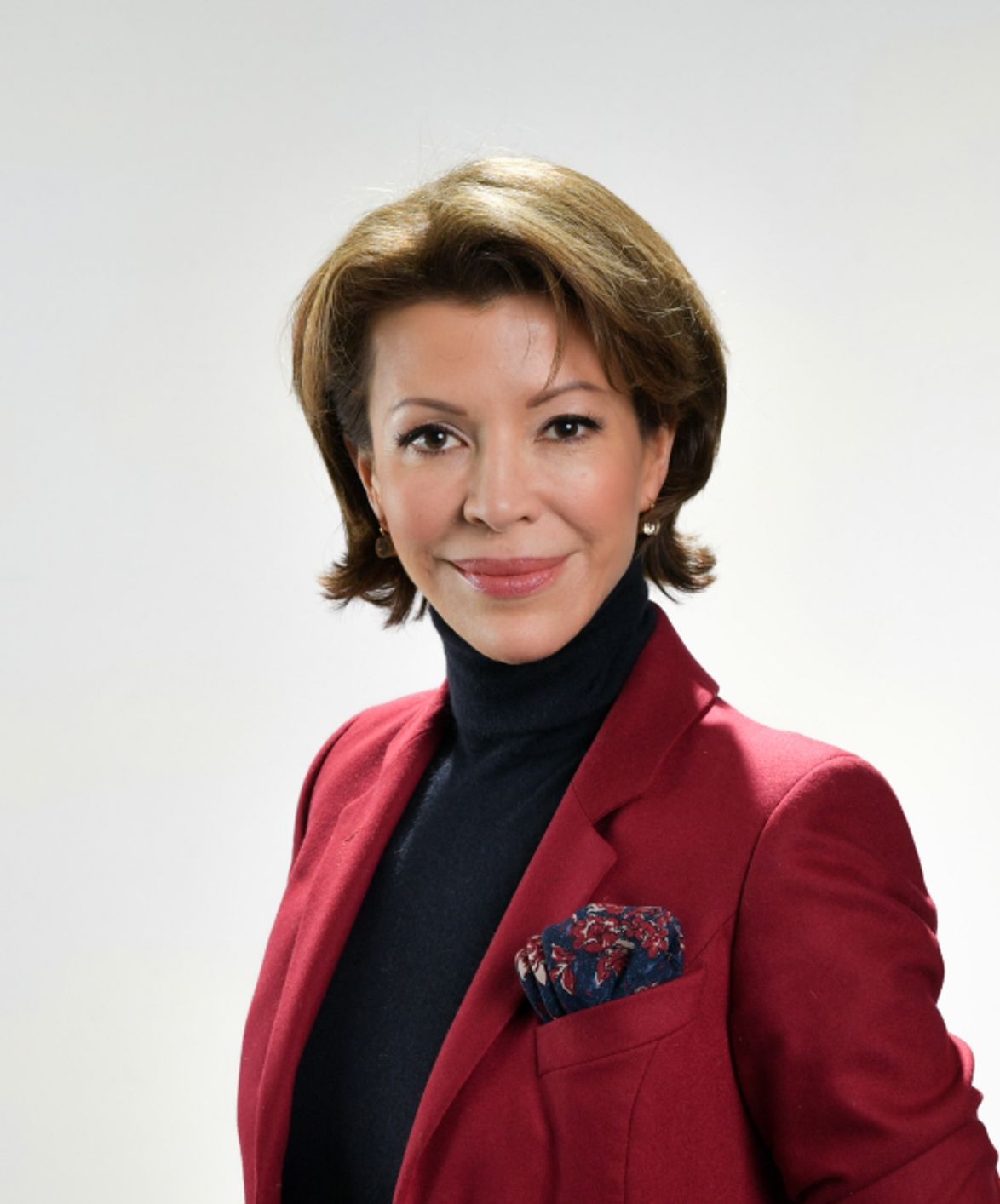
Naryshkin’s protégée Veronika Krasheninnikova
On May 17, 2021, Rufina Pukhova-Philby passed away. She survived her husband by 33 years. After her funeral, 54 items from the list Krasheninnikova had written up were transferred to the foreign intelligence museum in Yasenevo, including Philby’s set of pipes, the Festival radio set he had used to listen to “enemy voices”, his briefcase, and the hockey puck. The ceremony was attended by the SVR chief Sergey Naryshkin, Krasheninnikova herself, and Philby's follower Mikhail Bogdanov.
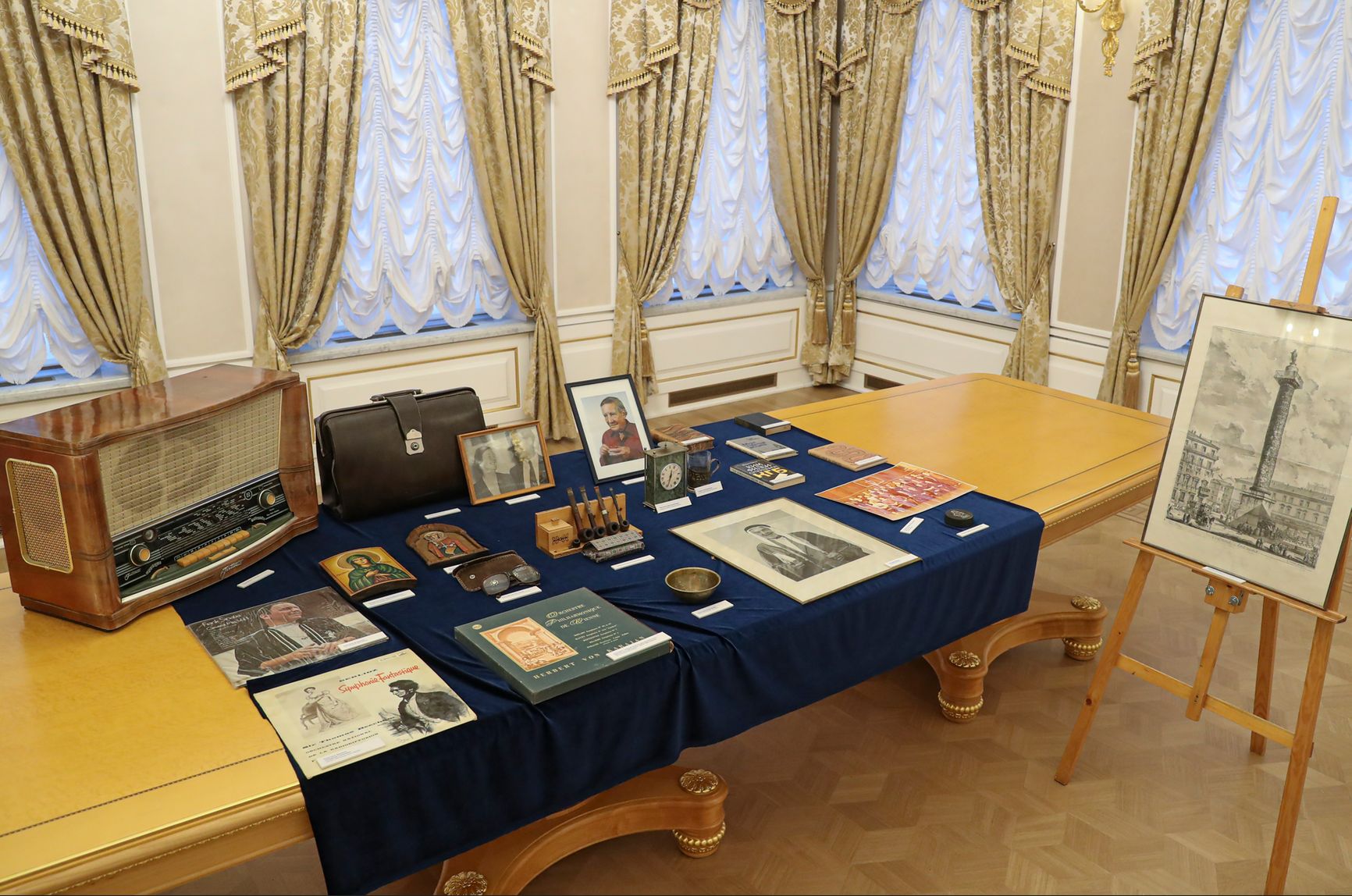
Kim Philby’s personal effects transferred to the SVR museum
“It is, of course, a precious gift for us. Veterans and active-duty officers of the Foreign Intelligence Service cherish the memory of this outstanding man, the legendary Soviet spy,” a contented Naryshkin said in his acceptance speech.

It was not disclosed, however, who got the antique furniture, the Persian rugs, The History of the Crimean War, and the rare books stolen from the Dublin library. The Insider submitted an inquiry to Natalya’s granddaughter, whom the Philbophiles mentioned in the correspondence. Initially, the girl was forthcoming but then went off the radar. In the meantime, as we learned, there is already a waiting list to purchase the famous apartment. Veronika Krasheninnikova has also refused to respond to The Insider's inquiries.